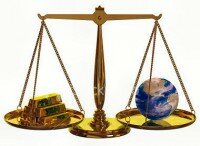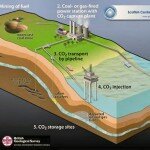11 November 2010: European Commission’s new energy strategy
Posted in Comment on 11/11/2010 01:41 pm by Stephen TindaleThe Commission’s proposal for a new energy strategy is disappointing – it lacks specific policy proposals.
read more »The Commission’s proposal for a new energy strategy is disappointing – it lacks specific policy proposals.
read more »Denmark, the current president of the European Council of Ministers, should stand firmly behind the Commission’s proposals on energy efficiency and not give in to the demands of other member states.
read more »On Wednesday 15 July 2009, the UK government published its plan to make the UK a low carbon economy. It is good on electricity, quite good on energy efficiency and heat, but bad on transport.
read more »Today, the European Commission published its proposals for a 2030 climate and energy framework. The targets are not ambitious, but policy makers should now focus on measures rather than numbers.
read more »Burning coal is an extremely damaging way to generate electricity. Coal has a very high carbon content, so is a major source of greenhouse gasses. Burning it also results in pollutants that are directly damaging to human health, such as sulphur dioxide.
read more »My article for ‘Responding to Climate Change’ on European governments’ acceptance of Commission proposals for a 2030 climate and energy package.
read more »The European Commission published its Energy Efficiency Plan yesterday. It isn’t bad, and calls for combined heat and power to be made mandatory in some cases. The plan should be implemented without delay.
read more »
The demand to ‘make the polluter pay’ by putting a price on the amount of carbon dioxide and other greenhouse gases produced has been a major point of discussion and debate across Europe since the mid-1980s. This article summarises carbon and energy taxes existing in European countries and how effective they have been.
read more »
Coal has a very high carbon content, so is a major source of greenhouse gasses and the economic costs of polluting the atmosphere are not borne by the polluter, In economic jargon, ‘the externalities are not internalised’.
read more »The EU should not buy electricity from countries with highly-polluting coal power stations, and should instead support efficiency and clean energy in these countries.
read more »
All three main UK parties take climate seriously and promise to reduce emissions and expand low-carbon energy. They all recognise the energy security and employment benefits. This article includes quotations from the relevant parts of the manifestos of the three main parties on heat and electricity – energy efficiency, fuel poverty and energy production.
read more »
The EU should strengthen its CHP directive so that, whenever anything is burnt to generate electricity, the heat must be used. It should also require member states to do as the Swedes do and require energy efficiency improvements whenever a property is sold or rented out.
read more »
The UK government is strongly supportive of biomass as a means of increasing energy security. It also regards biomass as a major contributor to meeting the UK’s EU renewable energy target, and as an important contributor to carbon reductions – though it has stressed that not all biomass is sustainable.
read more »
Rotterdam is now Europe’s largest port. It has a concentration of heavy industry, including oil refineries and power stations. So its contribution to climate emissions is substantial.
read more »
This is a paper that the three authors of the Repowering Communities book discussed with UK government officials and other experts at a seminar on 1 November 2010. It covers examples of which local governments are doing best on energy efficiency and renewables, and makes some recommendations.
read more »The low-carbon energy sectors – efficiency, most renewables, CCS and nuclear – should work together more strategically
read more »
40% of heat in Denmark is delivered through district heating networks and 82% of this heat comes from Combined Heat and Power plants. How has Denmark done so well?
read more »